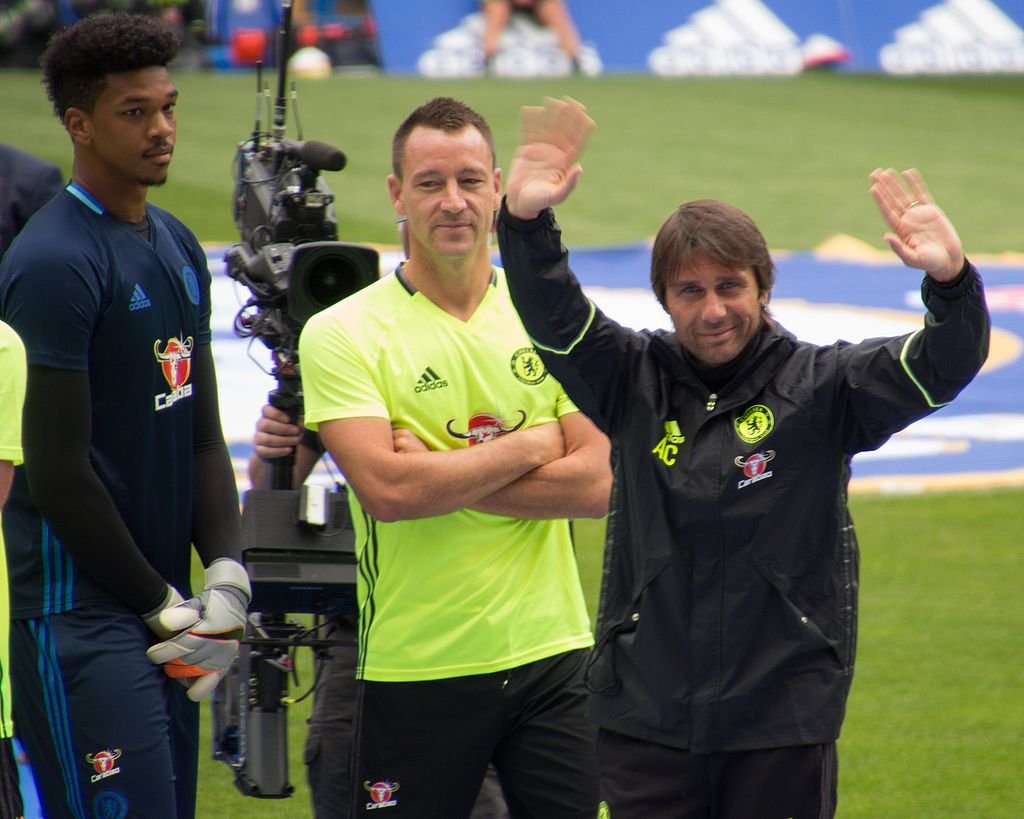
Antonio Conte. Photo by @cfcunofficial (Chelsea Debs) London, CC BY-SA 2.0
English version
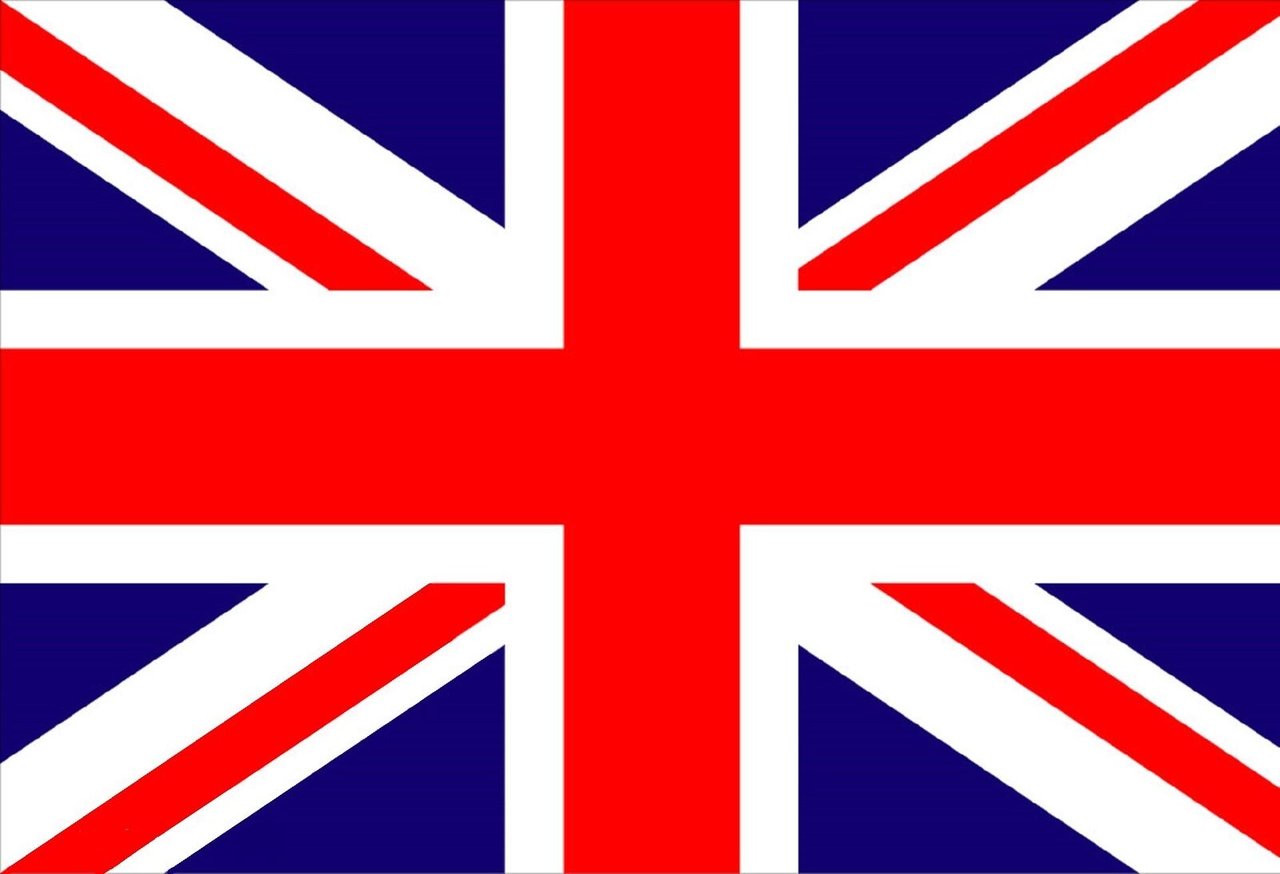
Of the seven Italian teams involved in European competitions, four passed the first round brilliantly, winning their groups (Juventus, Napoli, Roma and Milan); one of them (Lazio), finished second undefeated, and another one (Atalanta) finished after the six scheduled matches behind Liverpool, one of the strongest teams in Europe, making the exploit of beating him at Anfield Road.
In the history of Italian football, this is the first time that more than five of our teams have managed to reach the second phase of the European cups, and the "feat" could have been even more epic if the fourth formation in the Champions League had also participated: I mean Inter, finished badly in last position, behind teams not irresistible at all like Shaktar and Borussia Monchengladbach.
Rightly or wrongly, when a team like Inter, fresh from major investments by the owners, goes through such a debacle, it is the coach's turn to end up in the eye of the storm. Antonio Conte, after a first year with the Nerazzurri, in which he was able almost to achieve success both in the Serie A and in the Europe League, was expected by a growth of the group from all points of view, especially after all his market "whims" had been satisfied in the summer by the management; however, the team has so far disappointed expectations, being defeated by Milan in the only real important clash of the season in Serie A, and eliminated as the last of their group in the cup.
Football, as we know, is a sport in constant tactical evolution; winning cycles usually run out within a few years, and with them also the ideas that led them to their maximum goals and often the coaches unable to change their beliefs based on the news present in the international field, end up remaining a step behind others, and maybe burn the credit built up over time.
Antonio Conte saw his career as an emerging coach soar in the 2010/2011 season, when at the helm of Siena he achieved a historic promotion in Serie A; thanks to his fast and offensive gameplay, combined with an excellent physical preparation of the players, he deserves the call of Juventus, a club in which he had already played for thirteen seasons, becoming its captain.
As coach of the bianconeri, he won three consecutive league titles, but the Italian domination does not correspond to a European path of equal value: the Champions League 2012/13, which records the Salento coach's debut in international competitions, sees Juventus reach the quarter-finals, to be eliminated by Bayern Munich without ever having a real chance to qualify, but it is in the following season that Conte disappoints expectations more, failing to pass a group widely within the reach of his team, composed not only by Real Madrid, but also by Galatasaray and Copenhagen.
The draw in Denmark and the defeat of Istanbul, in the last decisive match, nevertheless offered Juventus, third in her group, the possibility of competing in the Europa League, which that year is planning the final at the Juventus Stadium; after beating Trabzonspor, Fiorentina and Lione, the Bianconeri fell again against an opponent of lesser caliber, being eliminated in the semifinals by Benfica.
Conte leaves Juventus in the following summer, after training has already begun. His disagreements with the management, who did not agree at all on the thesis supported by the coach about the inadequacy of the squad available, became incurable. In his place comes Massimiliano Allegri (who will be able to immediately lead the Juventus players to the final of the Champions League), while, after a short sabbatical, the Lecce-born coach signs an agreement with the Italian Football Federation to coach the Italian national team.
At the 2016 European Championships Italy starts well, but Conte's team is once again stopped in the quarter-finals, this time by Germany (which for the first time in history eliminates the national team) on penalties, after a draw achieved only thanks to a naivety of the German defender Jerome Boateng. With the agreement already signed with the Chelsea in his pocket, Conte greets once again the team that had been entrusted to him, to go where the "booty" is most succulent, after a mission accomplished once again only halfway.
With the Londoners he immediately wins the Premier League without the "distraction" of the European cups, in a situation very similar to that of his first year at Juve, but the following year he disappoints once again: in Europe, his team is eliminated in Champions League in the round of 16 from Barcelona, after finishing the group in second place and in the league cannot go beyond fifth place, which costs him the exemption.
The rest, is a recent history: he returns to Serie A after a year as unemployed, hired by Inter, despite the well-informed claim that he has done everything to return to coach Juventus. With the Nerazzurri he finished second, but his weakness remains the competitions of the old continent: in the Champions League he did not exceed the first stage, due to some disappointing results (such as the internal draw with Slavia Prague) and in the post-covid resumption in Europe League, despite the shuffling of the cards and a team in top form, he is defeated in the final by Sevilla.
The elimination as the last of this year's preliminar group, even behind medium-sized teams such as Shaktar Donetsk, only reiterates once more how the current Nerazzurri coach finds himself in great difficulty in the stages that they matter. At Juventus he blamed the limited economic availability of the company, pronouncing a sentence that never went down to the Juventus environment:
You can't think of eating in a 100 euro restaurant with only ten euro in your pocket ...
However, he was lied to by Massimiliano Allegri, who with the team he had just abandoned reached the final of the Champions League.
The polemical character of Conte has even exacerbated over the years, becoming completely intolerant to criticism, even when it comes from more experienced characters and a broader curriculum such as Fabio Capello. The current coach of Inter must be recognized for the great ability to regenerate environments that have fallen into depression, which however, after a short time, seem to no longer be able to maintain the same vision as their leader.
Conte claims to have the players most pleasing to him at his disposal, refusing to compromise with the club, which sometimes prefers other objectives: the Eriksen case is exemplary of how he does not tolerate interference with insight into his field work and why, after a while, he often ends up in conflict with his collaborators.
The eleven million seasonal salary, which places him by far in first place among Serie A coaches, appears, in light of the fluctuating results, more due to the ability to sell one's image than to a real technical ability. Conte is now playing the last card to continue to be considered a top manager: if he should fail again, leading the team with the strongest squad and without European commitments, he could quickly slide back in the liking of various presidents, who would one day seek guidance for a top club.
Read also:
- Goodbye Paolo: the career of Paolo Rossi in Italy
- Serie A review, 10th round
- Barcelona - Juventus: best matches of the past
Versione italiana
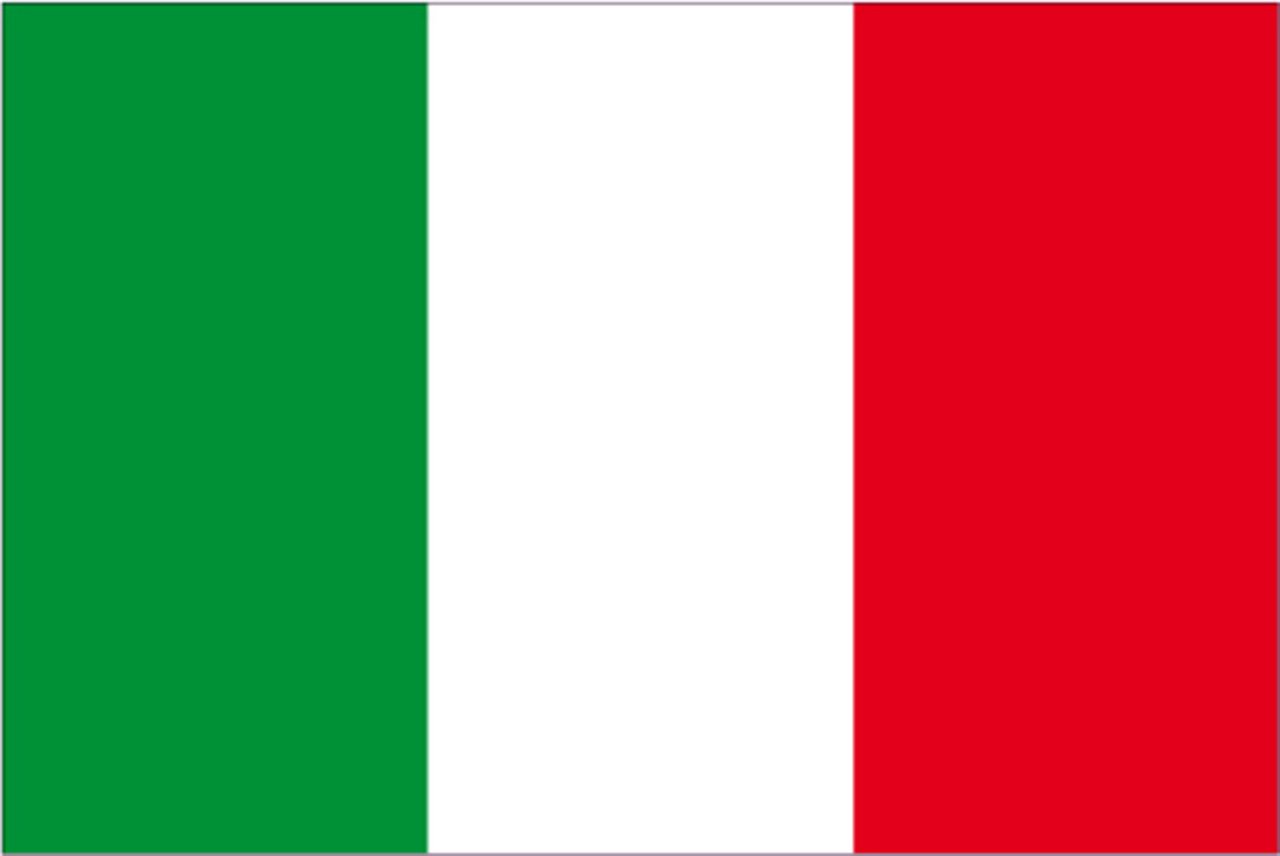
Delle sette squadre italiane impegnate nelle competizioni europee, quattro hanno passato brillantemente il turno, vincendo il proprio girone di qualificazione (Juventus, Napoli, Roma e Milan); una (la Lazio) si è classificata seconda da imbattuta, e un'altra ancora (l'Atalanta) si è ritrovata dopo le sei partite previste alle spalle del Liverpool, una delle squadre più forti d'Europa, compiendo l'exploit di batterla ad Anfield.
Nella storia del pallone tricolore, questa è la prima volta che le nostre formazioni riescono a superare la quota di cinque qualificazioni alla seconda fase delle coppe europee, e l'"impresa" avrebbe potuto essere ancora più degna di nota se all'appuntamento si fosse iscritta pure la quarta formazione presente in Champions League, l'Inter, terminata malamente in ultima posizione, dietro a compagini per nulla irresistibili come Shaktar e Borussia Monchengladbach.
A torto o a ragione, quando una squadra come l'Inter, reduce da importanti investimenti da parte della proprietà, va incontro ad una debacle del genere, a finire nell'occhio del ciclone tocca all'allenatore. Antonio Conte, dopo una prima annata in nerazzurro, nella quale è stato capace di sfiorare il successo sia in campionato che in Europa League, era atteso da una crescita del gruppo sotto tutti i punti di vista, soprattutto dopo che ogni suo "capriccio" di mercato era stato accontentato in estate dalla dirigenza, ma la squadra ha fin qui deluso le aspettative, venendo sconfitta in campionato dal Milan nell'unico vero scontro diretto della stagione in Serie A, ed eliminata come ultima del proprio girone in coppa.
Il calcio, si sa, è uno sport in continua evoluzione tattica; cicli vincenti si esauriscono di solito nel giro di qualche anno, e con essi anche le idee che li hanno portati ai massimi traguardi e spesso gli allenatori non in grado di modificare le proprie convinzioni in base alle novità presenti in campo internazionale, finiscono per rimanere un passo dietro agli altri, e magari bruciare il credito costruito nel tempo.
Antonio Conte ha visto impennare la sua carriera di allenatore emergente nell'annata 2010/2011, quando alla guida del Siena raggiunge una storica promozione in Serie A; grazie al suo gioco veloce e offensivo, unito ad un'eccellente preparazione fisica dei calciatori, riesce a meritarsi la chiamata della Juventus, società nella quale aveva già militato per tredici stagioni, diventandone il capitano.
Sulla panchina bianconera vince tre scudetti consecutivi, ma al dominio italiano non corrisponde un cammino europeo di pari valore: la Champions League 2012/13, che registra l'esordio dell'allenatore salentino nelle competizioni internazionali, vede la Juventus arrivare fino ai quarti di finale, per essere eliminata dal Bayern Monaco senza mai avere la reale possibilità di qualificarsi, ma è nella stagione successiva che Conte delude maggiormente le aspettative, non riuscendo a passare un girone ampiamente alla sua portata, composto oltre che dal Real Madrid, anche dal Galatasaray e dal Copenaghen.
Il pareggio in Danimarca e la sconfitta di Istanbul, nell'ultima decisiva partita, offrono tuttavia alla Juventus, terza, la possibilità di competere in Europa League, che quell'anno ha in programma la finale proprio allo Juventus Stadium; dopo aver superato Trabzonspor, Fiorentina e Lione, i bianconeri cadono di nuovo contro un avversario di caratura inferiore, venendo eliminati in semifinale dal Benfica.
Conte lascia la Juventus nell'estate successiva, a ritiro già iniziato. I suoi dissapori con la dirigenza, per nulla d'accordo sulla tesi sostenuta dall'allenatore circa l'inadeguatezza della rosa a disposizione, divengono insanabili. Al suo posto arriva Massimiliano Allegri (che sarà capace di portare subito i torinesi fino alla finale di Champions League), mentre, dopo un breve periodo sabbatico, il tecnico leccese firma un accordo con la Federazione per allenare la nazionale italiana.
Agli Europei 2016 l'Italia parte bene, ma la squadra di Conte viene ancora una volta fermata ai quarti di finale, questa volta dalla Germania (che per la prima volta nella storia riesce ad eliminare la nazionale azzurra) ai calci di rigore, dopo un pareggio raggiunto solo grazie ad un'ingenuità del difensore tedesco Jerome Boateng. Con l'accordo già firmato col Chelsea in tasca, Conte saluta ancora una volta la squadra che gli era stata affidata, per dirigersi dove il "bottino" è più succulento, dopo una missione compiuta ancora una volta solo a metà.
Con i londinesi vince subito la Premier League senza la "distrazione" delle coppe europee, in una situazione molto simile a quella del suo primo anno alla Juve, ma l'anno successivo delude ancora una volta: in Europa la sua squadra viene eliminata in Champions League agli ottavi di finale dal Barcellona, dopo aver concluso il girone al secondo posto e in campionato non riesce ad andare oltre il quinto posto, che gli costa l'esonero.
Il resto è storia recente: torna in Serie A dopo un anno da disoccupato , ingaggiato dall'Inter, nonostante i ben informati sostengano che abbia fatto di tutto per tornare ad allenare la Juventus. Con in nerazzurri arriva secondo, ma il suo punto debole rimangono le competizioni del vecchio continente: in Champions League non supera il girone, a causa di alcuni risultati deludenti (come il pareggio interno con lo Slavia Praga) e nella ripresa post-covid in Europa League, nonostante il rimescolamento delle carte e una squadra in piena forma, viene sconfitto in finale dal Siviglia.
L'eliminazione da ultima del girone di quest'anno, dietro addirittura a formazioni di media caratura come lo Shaktar Donetsk, non fanno che ribadire una volta in più come l'attuale allenatore nerazzurro si trovi in grande difficoltà nei palcoscenici che contano. Alla Juventus diede la colpa alla limitata disponibilità economica della società, pronunciando una frase mai andata giù all'ambiente bianconero:
Non si può pensare di mangiare in un ristorante da 100 euro con soli dieci euro in tasca...
Venendo tuttavia sbugiardato da Massimiliano Allegri, che con la squadra da lui appena abbandonata giunse fino alle finale di Champions League.
Il carattere polemico di Conte si è negli anni addirittura inasprito, diventando del tutto insofferente alle critiche, anche quando giunte da personaggi di maggior esperienza e dal curriculum più ampio come Fabio Capello. All'attuale allenatore dell'Inter va riconosciuta la grande capacità di rigenerazione di ambienti caduti in depressione, che tuttavia dopo poco tempo sembrano non riuscire più a mantenere la stessa lunghezza d'onda del proprio condottiero.
Conte pretende di avere a sua disposizione i giocatori a lui più graditi, rifiutandosi di scendere a compromessi con la società, che magari predilige altri obiettivi: il caso Eriksen è esemplare di come non tolleri intromissioni all'interno del suo lavoro sul campo e del perché, dopo poco, spesso finisce per confliggere con i suoi collaboratori.
Gli undici milioni di stipendio stagionale, che lo collocano di gran lunga al primo posto tra gli allenatori della Serie A appaiono, alla luce dei risultati altalenanti, più frutto della capacità di vendere la propria immagine che di una reale capacità tecnica. Conte si gioca ora l'ultima carta per continuare ad essere considerato un allenatore top: se dovesse fallire un'altra volta, alla guida della squadra con la rosa più forte e senza impegni europei, potrebbe rapidamente scivolare indietro nel gradimento dei vari presidenti, che un domani dovessero cercare una guida per un top club.
Leggi anche:
- Arrivederci Paolo: la carriera di Paolo Rossi in Italia
- Serie A review, 10^ giornata
- Barcellona - Juventus: le più belle sfide del passato


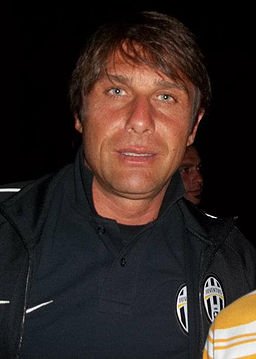
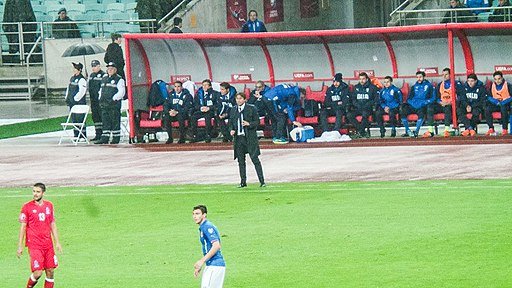
.jpg)